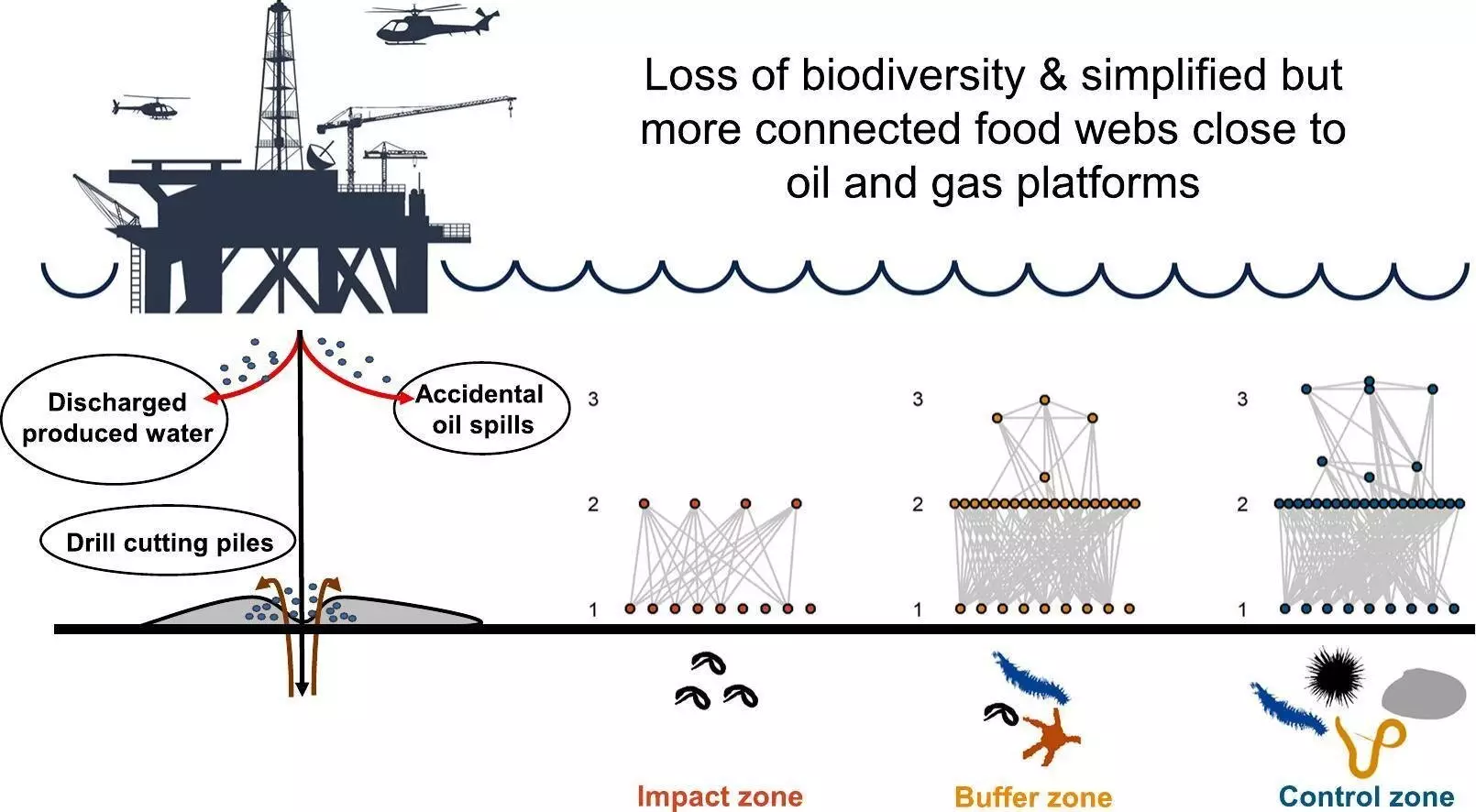The North Sea has long been a focal point for oil and gas extraction, a vital source of energy that powers economies and supports industries. However, recent research led by the University of Essex in collaboration with the Natural History Museum and CEFAS has thrown a spotlight on the stark environmental consequences of these operations. Their study reveals a shocking surge in pollution levels, more than 10,000%, in proximity to offshore platforms. As the search for fossil fuels intensifies worldwide, these findings raise critical questions about the sustainability of such practices and their long-term repercussions on marine ecosystems.
An Alarming Decline in Biodiversity
The comprehensive analysis, published in the journal ‘Science of The Total Environment,’ highlights a disheartening trend: a near 30% decline in marine species around oil and gas platforms. This data, gathered over three decades from 1981 to 2012, paints a grim picture of the ecological impact in the North Sea. The researchers evaluated 4,216 species near nine platforms off the coast of England and Scotland, uncovering the profound effects of contaminants like hydrocarbons and heavy metals. Specifically, lead, copper, and nickel levels were discovered to be exceptionally elevated, with some reaching a staggering 455% above baseline levels within a mere 500 meters of the platforms.
The Disruption of Marine Food Webs
One of the most alarming outcomes of this research is the transformation of food webs in contaminated areas. Marine invertebrates, which serve as crucial links in the ocean’s food chain, are suffering severely. The study noted that larger predators, such as starfish, were disappearing from these polluted zones, while smaller, more resilient organisms, like worms, were able to thrive. This shift in species dynamics indicates a simplification of the ecosystem that could have cascading effects on marine life. The reduction of species richness and the simplification of food webs reflect an area in serious ecological distress, raising urgent concerns about the viability of these habitats.
The Role of Chemical Analysis in Environmental Studies
Led by Ph.D. candidate Zelin Chen, the research utilized detailed chemical analyses to map the impact zones around the platforms. By defining specific areas of pollution—impact zones (within 500 meters), buffer zones (500-1500 meters), and control sites (beyond 1500 meters)—the researchers were able to draw clear distinctions in biodiversity. The results demonstrated that communities closer to the platforms exhibited a dramatic 28% decline in species richness and a reduced number of interconnections within their food webs. This scientific method underscores the critical importance of evidence-based research in understanding and addressing the ecological ramifications of industrial activities.
Urgent Calls for Change and Collaboration
The implications of this research go beyond academic interest; they highlight an urgent need for immediate action and change in how we approach fossil fuel extraction. As Dr. Natalie Hicks of the University of Essex points out, many of these platforms are nearing the end of their operational lives, presenting a pivotal moment for the industry. The study advocates for a science-led approach to the decommissioning of these platforms, emphasizing the necessity of collaboration between industry stakeholders and governmental bodies. The ocean plays a crucial role in climate regulation, and it is imperative that we prioritize its health for future generations.
An Ecosystem in Crisis
Dr. Gareth Thomas from the Natural History Museum illustrates the overarching consequence of ongoing oil and gas operations: the simplification of intricate ocean ecosystems. Rather than maintaining the rich tapestry of marine life, these activities favor a few hardy species, undermining the delicate balance that sustains marine biodiversity. This “potentially concerning legacy” serves as a stark reminder of the choices we face. As society strives to address climate change, we must critically evaluate our reliance on fossil fuels and consider the ecological costs of their extraction.
The North Sea’s plight is not just a localized issue; it reflects broader global challenges that require urgent attention. The evidence presented in this study must galvanize action, pushing policymakers, environmental scientists, and the public to reassess our collective approach to energy production and environmental stewardship. As we stand at a crossroads in our relationship with the planet, let us choose a path that champions sustainability and prioritizes the health of our oceans for generations to come.


Leave a Reply